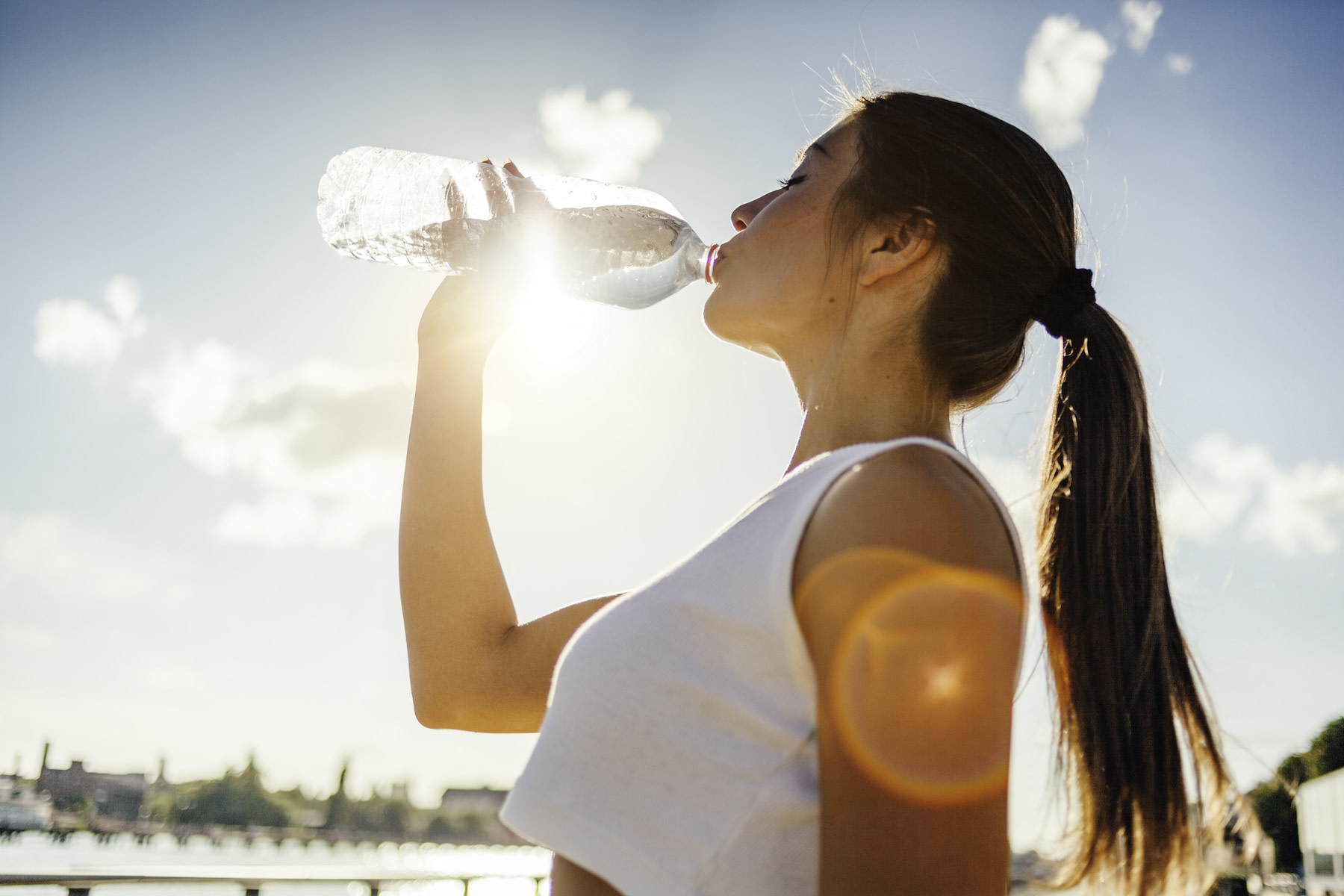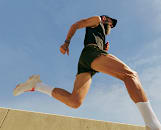
© milanvirijevic / Getty Images
Feel Sleepy After Workouts? Here Are 5 Ways to Perk Back Up
Napping isn't your only option to bounce back from fatigue.
By Michele Ross•
Why Do I Get Sleepy After I Work Out?
Causes of Exercise-Induced Sleepiness
How to Perk Back up After a Workout
The Pros and Cons of Napping After a Workout
5 Ways to Prevent Post-Workout Fatigue
The Takeaway
Exercise is one of the best things you can do for your body and overall health—full stop. It’s a tried-and-true habit that can boost countless markers of health, including energy levels, sleep quality, and a general sense of well-being. That said, feeling sleepy after a workout is a real thing for some of us. So what gives?
Discover more ways to reach your goals with Peloton
If you’ve ever hit a wall of sluggishness and fatigue after exercising—and especially if it’s a common occurrence—you’ll want to keep reading. Ahead, a physician and a dietitian share the lowdown on all things related to sleepiness after a workout, including causes and fixes to boost your energy.
Why Do I Get Sleepy After I Work Out?
According to Kaustubh Dabhadkar, MD, a preventive cardiologist based in Charlotte, North Carolina, it’s completely normal to get sleepy after a workout. Why is that, you ask? “Your muscles store energy in the form of glycogen. The stored glycogen has to be converted to a usable form of energy called ATP (adenosine triphosphate),” he explains. ATP is required for muscle contraction. Physical activity causes the muscles to deplete the supply of glycogen, resulting in muscle fatigue and the potential to evolve into sleepiness. “The byproducts of energy utilization, like lactic acid, also contribute to muscle fatigue,” he adds.
Simply put, when you overexert yourself, your muscles and entire body need rest, relaxation, and recovery, and they’ll find ways to communicate this to you.
Causes of Exercise-Induced Sleepiness
Several dietary, lifestyle, and personal health factors can also lead you to get tired after a workout. Here are some of the most common causes.
Nutritional Gaps
Maddie Pasquariello, RD, a dietitian based in Brooklyn, New York, also notes that depleted glycogen (i.e., the stored version of glucose, aka blood sugar) can lead to sleepiness after working out. But it’s not the only thing your body may be drained of that causes fatigue. “It may also be a result of dehydration and poor overall nutrition, including not fueling yourself properly for a workout,” she adds. (If you fall into this category, learn more about what to eat after a workout to refuel.)
Individual Endurance Levels
How much stamina you have, or lack, during a sweat sesh can also impact how sleepy you get once your workout is complete. As Dr. Dabhadkar explains, “Your endurance often depends on the energy reserves (glycogen stored in your muscles) and your body's ability to use these reserves effectively.”
He mentions some of the major health conditions that can negatively impact your body’s ability to use glycogen as follows:
Hormonal disturbances (e.g., diabetes, thyroid imbalances, issues with the adrenal glands)
Low blood counts
Heart disorders/weaknesses or blood flow obstructions
Lung disorders that impair oxygen exchange
Depletion of Neurotransmitters
“The depletion of neurotransmitters—i.e., chemicals that help signals from the brain reach the muscle—can also result in feelings of tiredness,” Dr. Dabhadkar shares. According to a 2017 review in the Brazilian Journal of Medical and Biological Research, studies on exercise-induced fatigue have yielded conflicting results as far as serotonin (involved with mood regulation, sleep, healing, and more) and dopamine (involved with reward, motivation, and more) are concerned. However, since the serotonergic and dopaminergic systems interact with one another, the authors note that the ratio between the two neurotransmitters appears to be more relevant when determining how fatigue factors into the equation (versus looking at one or the other).
All things considered, if you struggle with such chemical imbalances regularly, you may find that you’re more prone to sleepiness after working out.
Overexertion
Perhaps you’re new to exercising in general, or kicking off a tougher regimen than your norm. In either case, Dr. Dabhadkar explains that the resulting fatigue, aka deconditioning, is common. “Typically, this improves with regular exercise and time,” he says.
In addition, Pasquariello says that a lack of adequate rest—whether the night before working out or attributed to ongoing insomnia—can make you feel extra snoozy once your workout is complete.
How to Perk Back up After a Workout

© RICOWde / Getty Images
If you just finished a workout only to find yourself sore and sleepy, a few quick hacks may help you perk back up. While you might want to reach directly for some caffeine, Pasquariello advises against counting on it as your automatic first line of defense. That said, she doesn’t give coffee before a workout a firm no-go, either. “While it's fine for most people to preempt a workout with caffeine in moderation, during the workout itself you want to prioritize hydration and electrolytes,” she shares. “After a workout, you want to make sure you're prioritizing both nutrition and hydration.”
Enjoying fresh air and/or taking a walk, stretching, or foam rolling may also help you bounce back from post-workout fatigue. However, it’s totally fine to simply allow yourself to take a break—and absolutely recommended if that’s what your body requires.
The Pros and Cons of Napping After a Workout
Feel super sleepy after working out? If your schedule allows, you might be tempted to take a power nap… but should you? According to Dr. Dabhadkar, napping may be beneficial in the short term. “In general, napping helps the body recover after exercise. A short 10 to 15-minute nap may be reasonable after intense exercise,” he shares.
Just be aware that a nap could potentially disrupt your circadian rhythm. As a result, you might toss and turn later that night, only to find your fatigue remaining in full force the next day. “When you nap, ensure it's not impacting your nighttime sleep duration and quality,” he advises. To keep your daytime dozing within healthy bounds, try to maintain a relatively short snooze and perhaps skip napping later in the day. Instead, hitting the hay early can be a happy medium.
5 Ways to Prevent Post-Workout Fatigue
If you lack vitality after exercising, know that there are many options to get ahead of sleepiness after a workout. Here are some of the best hacks to adopt.
1. Work Out After a Good Night’s Rest
If you tax your body after getting poor sleep, there’s a good chance you’ll feel dull and drab both during and after your workout. As such, it may be best to save your workout for another day after you’ve rested well. “Adequate rest is mandatory before exercise,” says Dr. Dabhadkar. In addition, he advises against working out when sick.
2. Recover After Your Previous Workout
Again, overexertion won’t do your body or your energy levels any good if you don’t allow your muscles and entire body to recover. “Feeling a bit sluggish when you finish a tough workout or athletic endurance event—especially one that's 60 to 80 minutes in length or longer—is your body's way of signaling to you that you need to recover through nutrition, hydration, and other tactics,” Pasquariello shares.
“Sometimes it is helpful to take an occasional break,” adds Dr. Dabhadkar. Listen to and honor your body’s needs. Remember: Rest days are an important component of your exercise regimen, too. For those who are resistant to this idea, active rest days are also an option. For inspo, check out the Peloton App for things to do on your rest days, like a foam rolling class or meditation class.
3. Know Your Limits
When starting or leveling up any fitness routine, it’s important to take things one (literal and figurative) step at a time. “It is paramount to gradually increase your activity level and avoid pushing your body too hard when starting an exercise plan,” Dr. Dabhadkar shares. Moreover, it’s important to distinguish expected and disproportional fatigue. “Fatigue that is out of proportion to the level of exercise can arise from medical conditions, so consulting a physician is essential,” he says.
4. Eat Up Before Your Workout
“I usually recommend having a small bite of something that's relatively easy to digest before your workout,” says Pasquariello. This might include:
Half of a protein bar
Half of a banana
Toast
A few rice cakes with peanut butter
Snacks like these can provide quick energy to burn before you hit the ground running. (Learn more about some of the best foods to eat before a workout.) At the same time, she suggests avoiding heavy foods (think: greasy, high-fat, and high-calorie foods) prior to working out. They’re harder to digest and can leave you feeling even more sluggish.
With these recs in mind, Pasquariello notes that some people may prefer to do fasted workouts. If it works for you, she doesn’t advise against it—namely if it’s in the morning and you haven’t yet worked up an appetite. “You can likely go into your morning workout fasted without significantly hindering performance,” she shares. However, if you start your day with coffee, she does recommend eating a little something alongside it. This will help you avoid getting jittery as well as keep your hunger cues on track.
5. Nourish Yourself After Your Workout
Eating well after a workout is one of the best things you can do to fuel your body and overcome post-workout sleepiness. “Replenishing your glycogen reserves with carbohydrates is important, as is consuming protein to help repair and rebuild muscle fibers,” Pasquariello explains. “For that reason, eating a macronutrient-balanced meal within two hours of your workout is a good rule of thumb.” Note: If you did a fasted workout, she advises eating a bit earlier.
Moreover, hydration is the name of the game, so be sure to keep H2O handy. “Electrolyte supplementation can also help minimize fatigue,” says Dr. Dabhadkar. This especially applies if you worked up a major sweat and lost excess electrolytes via perspiration.
The Takeaway
Although sleepiness after a workout is common enough, it surely doesn’t have to be your norm. Above all, Pasquariello says that prioritizing rest, managing stress, and nourishing your body throughout the day will provide you with sustained energy. (This applies whether or not you have a workout on the books.) “After sleep, making sure you’re consuming enough calories and drinking enough water throughout the day are usually the main things I look for to address sluggishness,” she shares.
In most cases, heeding the pre- and post-workout rest and fueling tips above can help you beat any ill-timed Zzzs. Still, other outliers could be at play. “Of course, if you're experiencing persistent severe fatigue, this may be the sign of something else and should be discussed with a medical professional,” Pasquariello concludes.
This content is for informational and educational purposes only and does not constitute individualized advice. It is not intended to replace professional medical evaluation, diagnosis, or treatment. Seek the advice of your physician for questions you may have regarding your health or a medical condition. If you are having a medical emergency, call your physician or 911 immediately.
This content is for informational and educational purposes only and does not constitute individualized advice. It is not intended to replace professional medical evaluation, diagnosis, or treatment. Seek the advice of your physician for questions you may have regarding your health or a medical condition. If you are having a medical emergency, call your physician or 911 immediately.
Level up your inbox.
Subscribe for a weekly dose of fitness, plus the latest promos, launches, and events.
By providing your email address, you agree to receive marketing communications from Peloton.
For more about how we use your information, see our Privacy Policy.





